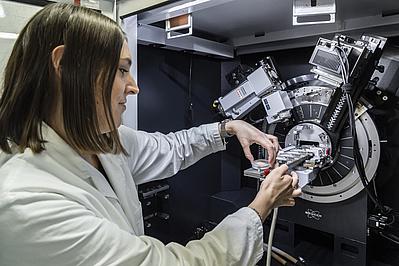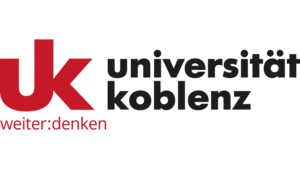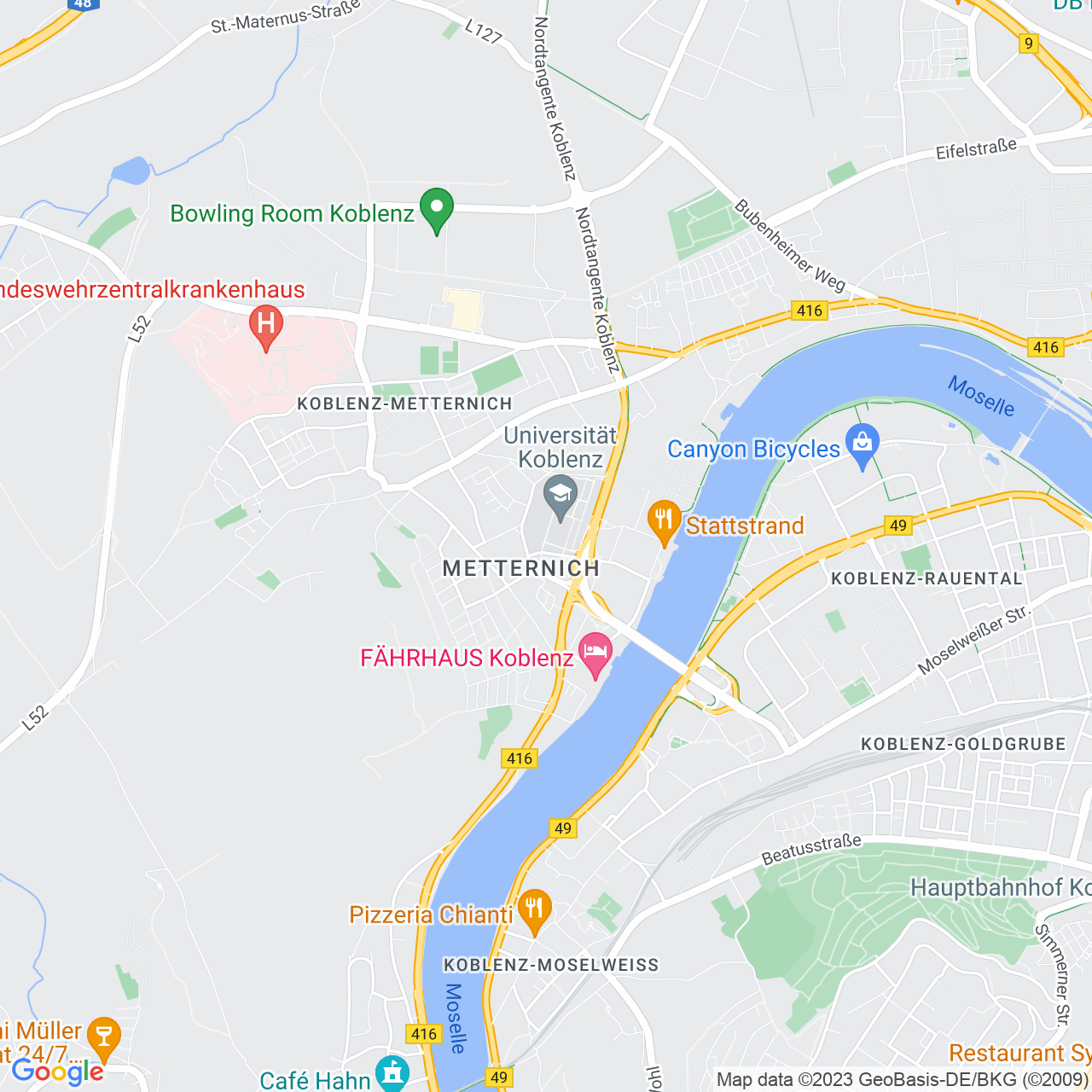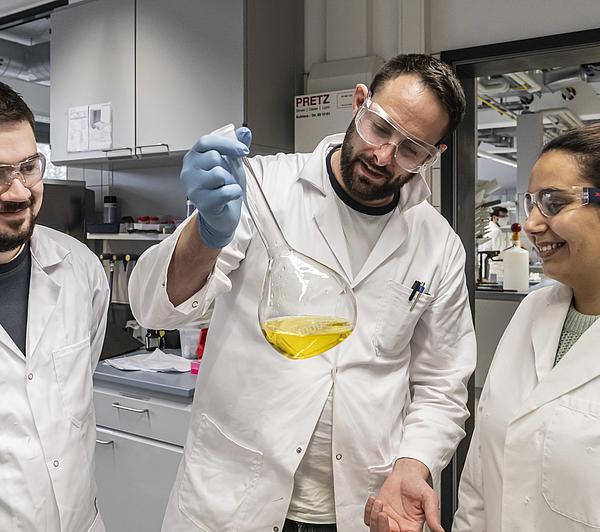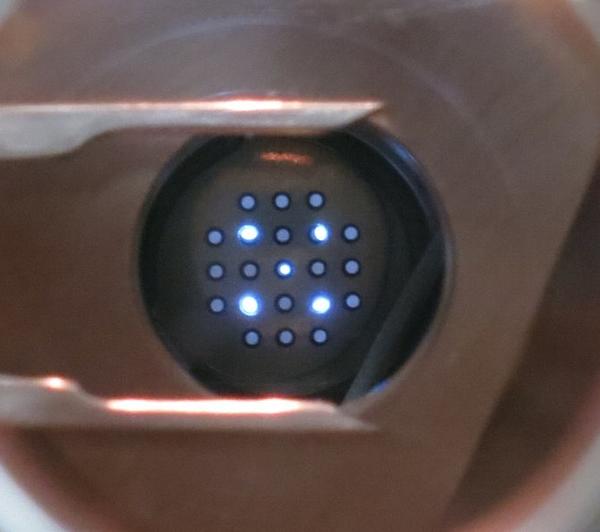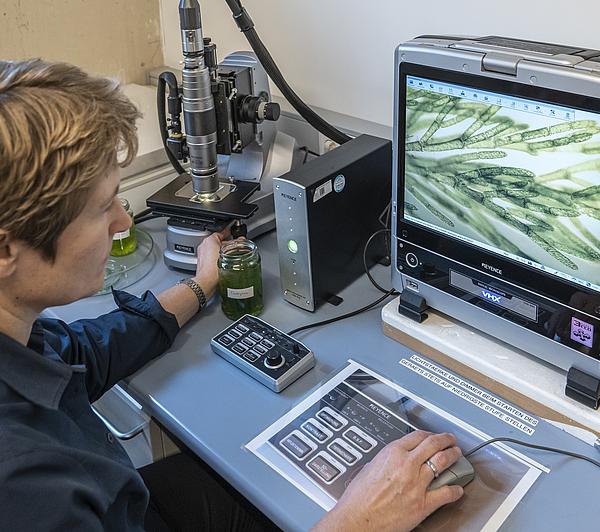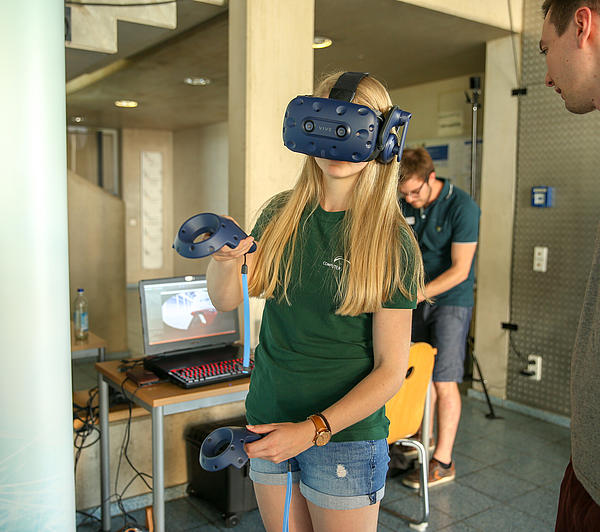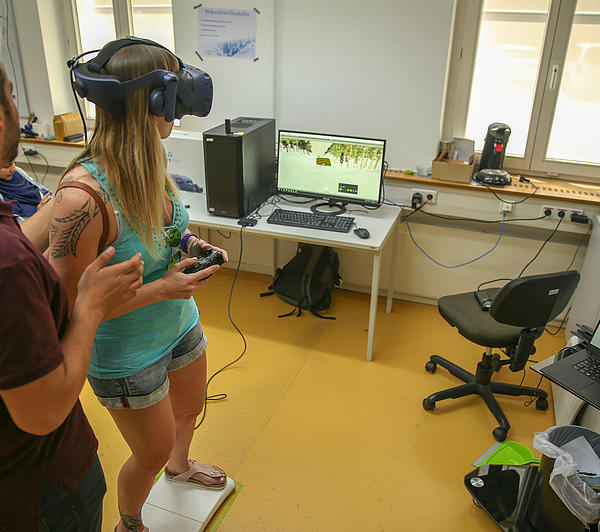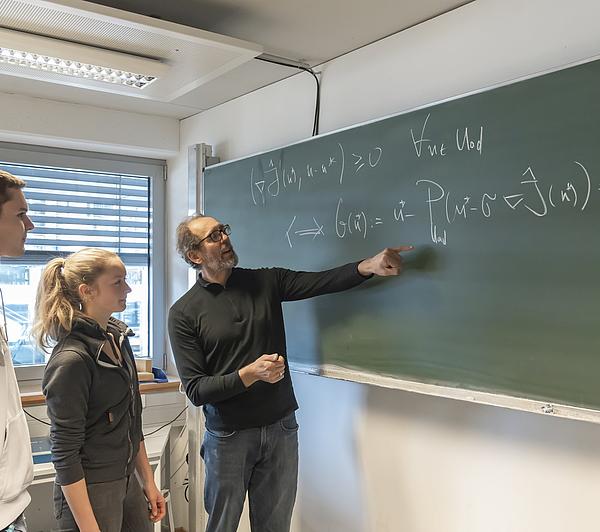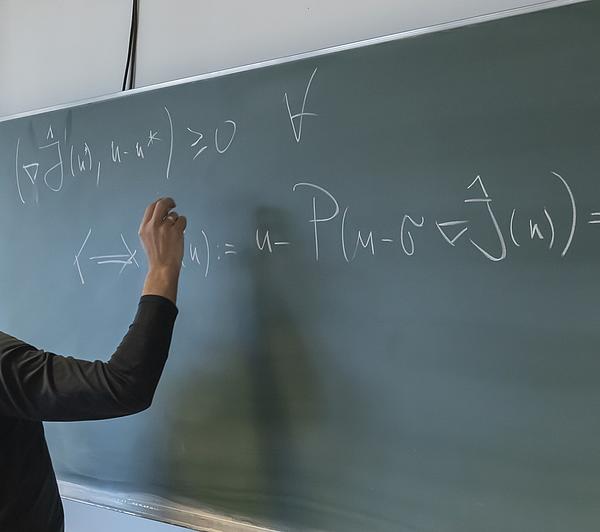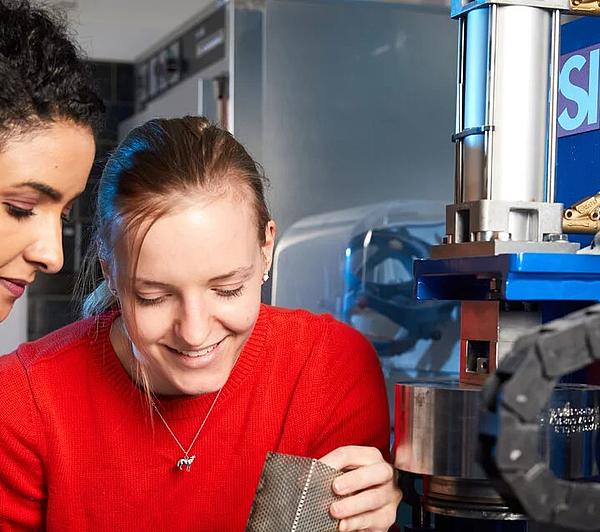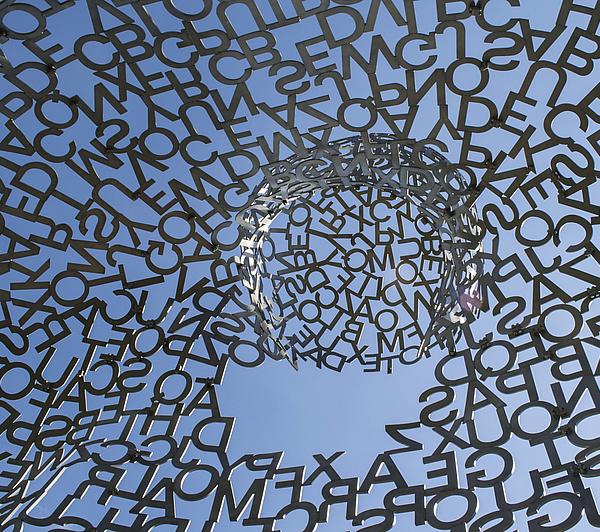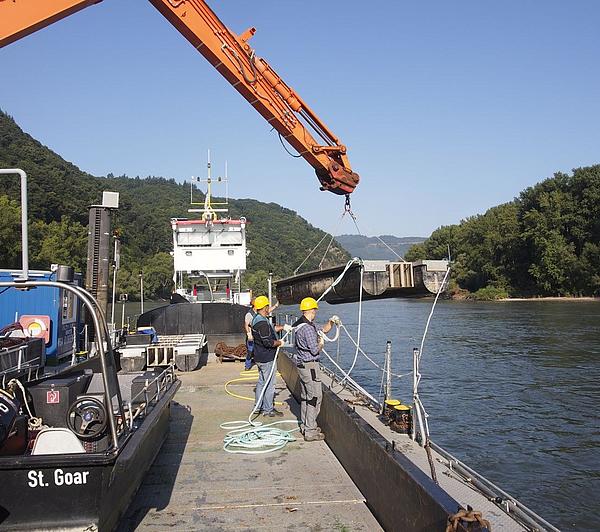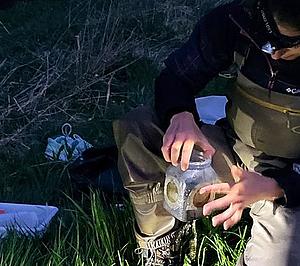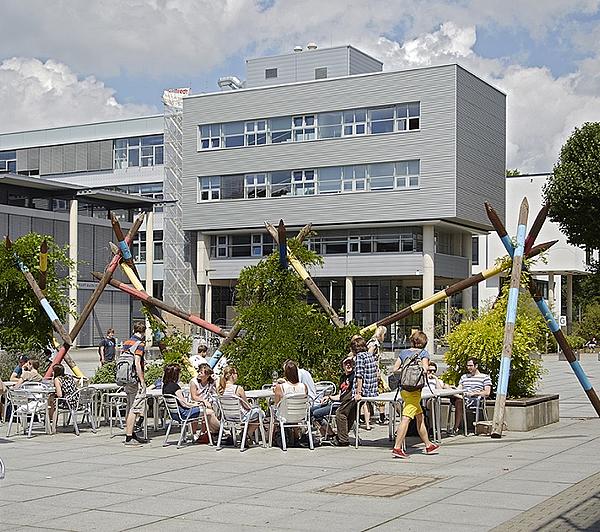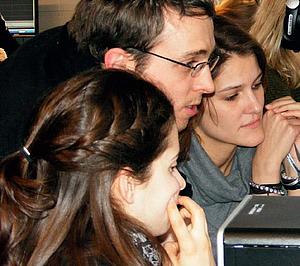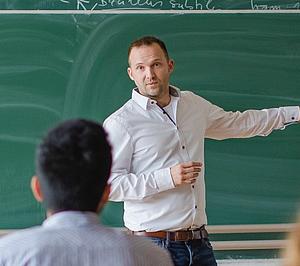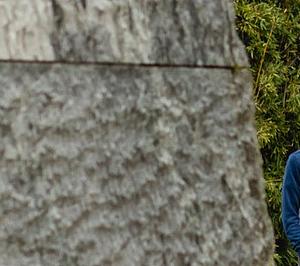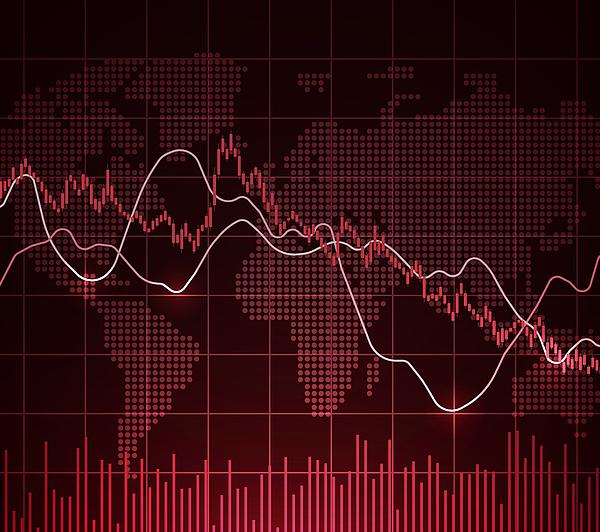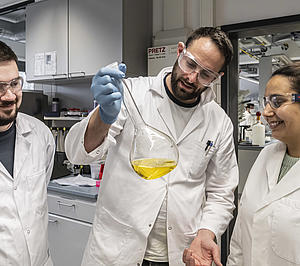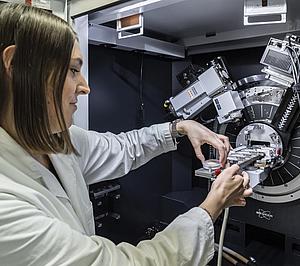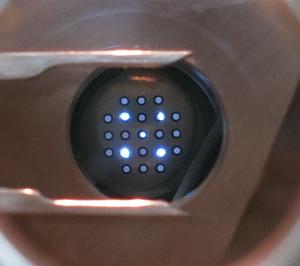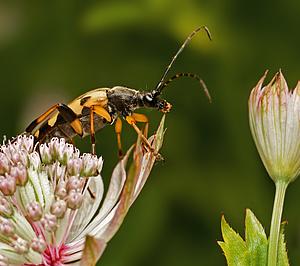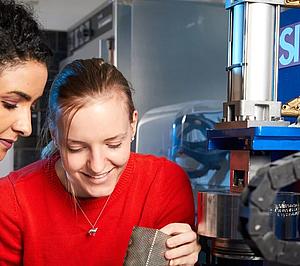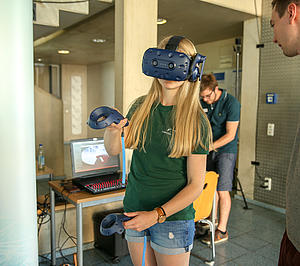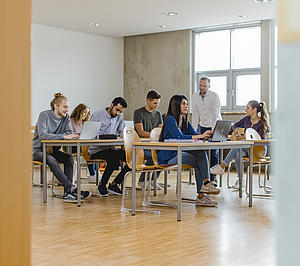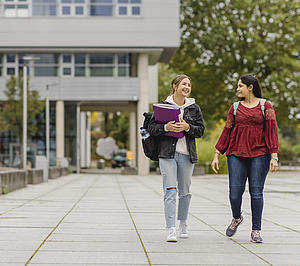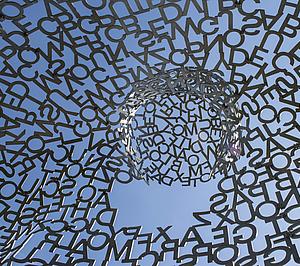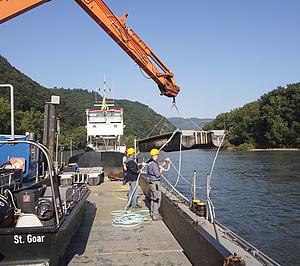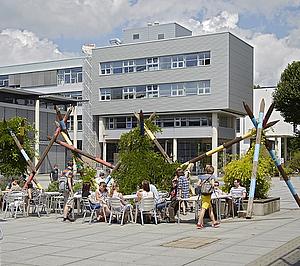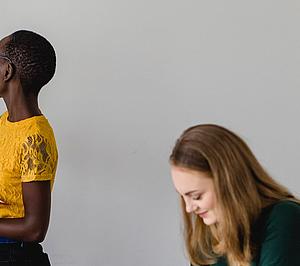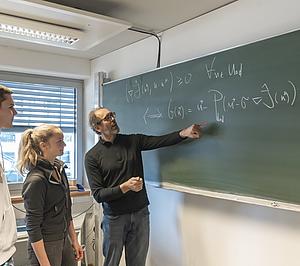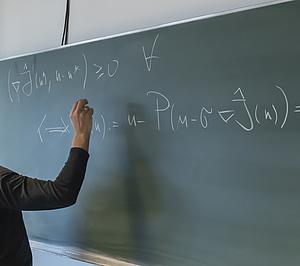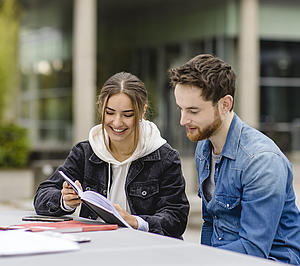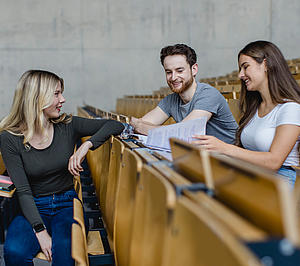Bridging Chemistry, Physics, and Life Sciences
The Master‘s programme in Applied Natural Sciences is an interdisciplinary programme that enables graduates of Bachelor programmes in applied natural sciences to work in research fields comprising chemistry, physics, and life sciences. It combines chemical and physical concepts in material science with environmental sciences, an aspect that is of increasing importance in terms of environmental protection.
Overview
Attention!
The Master's degree program M.Sc. Applied Natural Sciences has been revised and accredited with regard to its study structure and duration.
The model shown on this profile will no longer be offered in the coming winter term.
Information on the new study model can be found here.
- Summer semester
- Winter semester
- BSc in Applied Natural Sciences conferred by Universität Koblenz or equivalent degree (final grade 2.5 or better).
- The board of examiners decides on any exceptions on the basis of applications submitted.
- Exceptions in this regard are a Bachelor's thesis with the grade 1.5 or better or professional experience of at least one year in the field of chemistry and physics of functional materials.
- Prerequisites are a scientifically based command of higher mathematics, classical physics (mechanics, thermodynamics, electrodynamics, optics) and basic modern physics (atomic and molecular physics, quantum mechanics) on the level of experimental physics as well as in the basics and applications of general and inorganic chemistry, substance classes and reaction mechanisms in organic chemistry and material laws and states of matter in physical chemistry.
Further links
Contents and structure
The Master‘s programme comprises three semesters of fulltime study during which participants are required to obtain a total of 90 ECTS. For students with a Bachelor‘s degree equivalent to 180 ECTS, an additional semester (30 ECTS) is offered.
Ultimately, a total of 300 ECTS are required for the award of the MSc. Electives (42 ECTS) offer students the opportunity to deepen their knowledge of the physics and chemistry of functional materials and environmental aspects as well as in a broad range of other fields, such as biology, geosciences, mathematics, and computer sciences. The programme in particular provides the opportunity to gain practical skills. The practical phase comprises a research project (12 ECTS) and the final Master‘s thesis (25 ECTS) with a final oral exam (5 ECTS).
Students will acquire theoretical and practical skills in the synthesis, characterisation and applications of functional materials and environmental sciences. Electives make it possible to individually focus on, for instance, mathematics, biology, geoscience, economics, or computer science. Lectures will be held in English (modules taught in German can also be chosen as electives).
The programme offers a broad range of electives, such as mathematics, biology, geoscience, economics, and computer science.The interdisciplinary and applied approach enables graduates of this programme to synthesise and characterise functional materials and to identify interrelationships with aspects of life sciences. Please note that this MSc is not an engineering programme.
Prospects
As a graduate, you will have in-depth scientific knowledge in theory and practice that will qualify you for demanding jobs. In particular, you will qualify for a career in natural science research, but also for challenging administrative and industrial careers in sectors related to chemistry, physics, materials and life sciences.
English language courses during your studies will prepare you for scientific work in an international environment.
The Master‘s degree also opens up the possibility of taking consecutive PhD programme.
University
The University of Koblenz is one of the youngest universities in Germany. Research, teaching and everyday life at the university campus in Koblenz-Metternich are characterised by short distances and active interdisciplinarity.
The university's claim is "continue discovering". This reflects the incentive and aspiration of all members of the university to constantly scrutinise the familiar in order to gain new insights. To this end, the university offers its members the necessary freedom to further develop their academics and teaching and to break new ground in the transfer of ideas, knowledge and technology.

